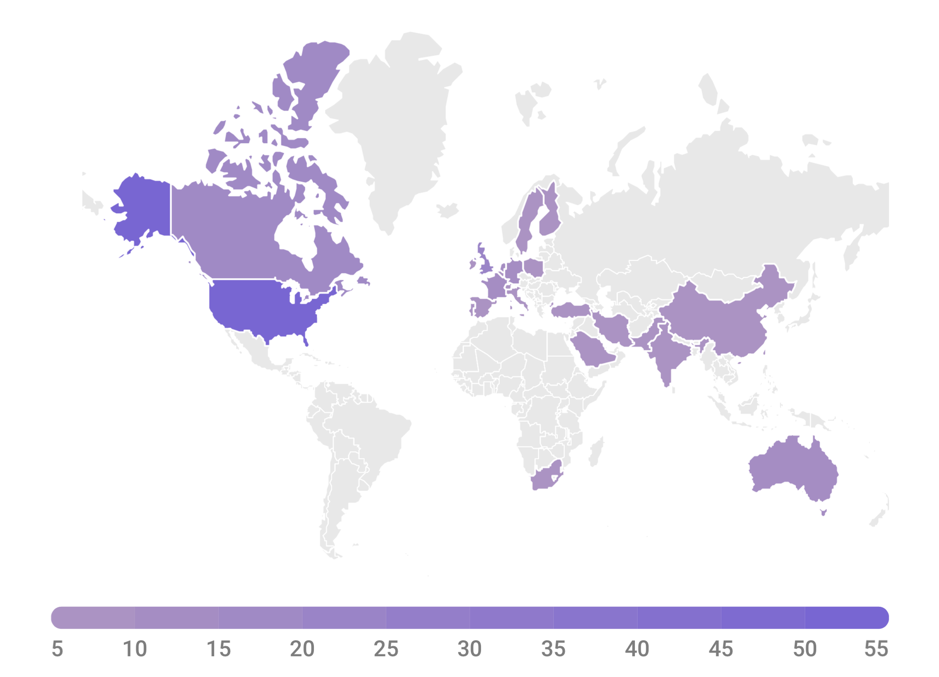Online international mentoring programme
About
The OHBM Online International Mentoring Programme, run by the OHBM Student and Postdoc Special Interest Group (SP-SIG), aims to connect mentors and mentees from around the world together. Applications to this mentoring programme includes basic details about the applicant, including their preference for mentors from specific demographic or experiential backgrounds - but not research areas and topics. In this relationship, the mentor supports the mentee in growing their career by providing advice on topics such as - but not limited to - personal development, grant writing, and work-life balance. We also encourage participants to meet in-person during the OHBM Annual Meeting.
Unique to the program is that every member of the OHBM community can be mentored, but also become a mentor. We host young PIs who still seek to be mentored as well as PhD students who volunteer to mentor others. As a rule of thumb, we keep at least 3 years of experience difference between mentors and mentees.
So far, over 1000 participants have taken part in the first four rounds of the programme. The participants are gender balanced, and come from all around the world. We observe that over 17% of participants are willing to take part in the programme in a double role, as a mentor and as a mentee, which indicates that the participants are willing to contribute and give back to the community for their mentee experience. Trainees are also increasingly keen for mentorship to guide them in considering career opportunities outside of academia and transitioning to industry (broadly defined). Lastly, the expectations and competencies declared by participants around the world are very similar, which is an indication that an online mentorship overseas is necessary and useful.
To find out more about our mentorship programme, you can read our position paper published in the European Journal of Neuroscience (Bielczyk, et al., 2018). https://onlinelibrary.wiley.com/doi/full/10.1111/ejn.14320
2026 APPLICATIONS ARE NOW OPEN: https://docs.google.com/forms/d/e/1FAIpQLSet9QmDw9_27cwryxOB4HKPBVo-1i_q5nl6LOtMGeZcXNfspQ/viewform
Applications and Timeline
November: Applications open to the OHBM Online International Mentoring Programme. This will be advertised via SP-SIG social media channels.
Applications close December 22 11:59PM PST. Mentor matching takes place (performed by the SP-SIG).
January: Notification of matching between mentors and mentees.
Expectations of Mentors
Mentors respond to their mentees in a timely fashion.
Meet with their mentees at least once per quarter over the course of the academic year.
Give feedback on one job, fellowship, or grant application (or equivalent) - should the mentee request.
Make time to meet with their mentee at least once in person at OHBM if the mentee requests.
Take the lead in shaping mentorship sessions if mentees are unsure what support they need
Mentors will be respectful to their mentee at all times, in line with OHBM code of conduct (https://www.humanbrainmapping.org/i4a/pages/index.cfm?pageid=3912).
Mentors are not obligated to work collaboratively with their mentee on research work, but are welcome to do so at their discretion.
Inform the Student Postdoc Special Interest Group at the earliest possible time if they are unable to continue mentoring their mentees so mentees can be assigned new mentors.
Report any issues or conflicts of interest related to their mentee to the Student Postdoc Special Interest Group at the earliest possible time.
Expectations of Mentees
It is expected that mentees initiate initial contact with their mentor to arrange a meeting at a mutually acceptable time.
Accept that their mentor will not necessarily be a subject specialist in the mentees area.
Mentees may request feedback from their mentor on one job, fellowship, or grant application (or equivalent).
Mentees can only request reassignment to a new mentor in exceptional circumstances and at the discretion of the Student Postdoc Special Interest Group.
Mentees will be respectful to their mentor at all times, in line with OHBM code of conduct (https://www.humanbrainmapping.org/i4a/pages/index.cfm?pageid=3912).
Should not expect that mentors will work collaboratively with them on research work, but this is welcome at the discretion of the mentor
Report any issues or conflicts of interest related to their mentor to the Student Postdoc Special Interest Group at the earliest possible time.
Suggestions on Discussion Topics
We provide some general template discussion
Future dreams or career plans
Alternative career paths to academia
Preparing and presenting a poster at OHBM
Networking at conferences
Applying for funding to support research
Advice regarding applying for scholarships, fellowships, or grants.
Understanding the funding environment in another region of the world.
Work-life balance
Navigating challenging work relationships
Structural of the international mentoring programme
Mentoring Resources
Mozilla leadership-training resources: https://github.com/mozilla/leadership-training/blob/master/for_mentors/tip_sheet.md#suggested-reading)
Distribution of the 450 participants in our mentoring program around the world.


